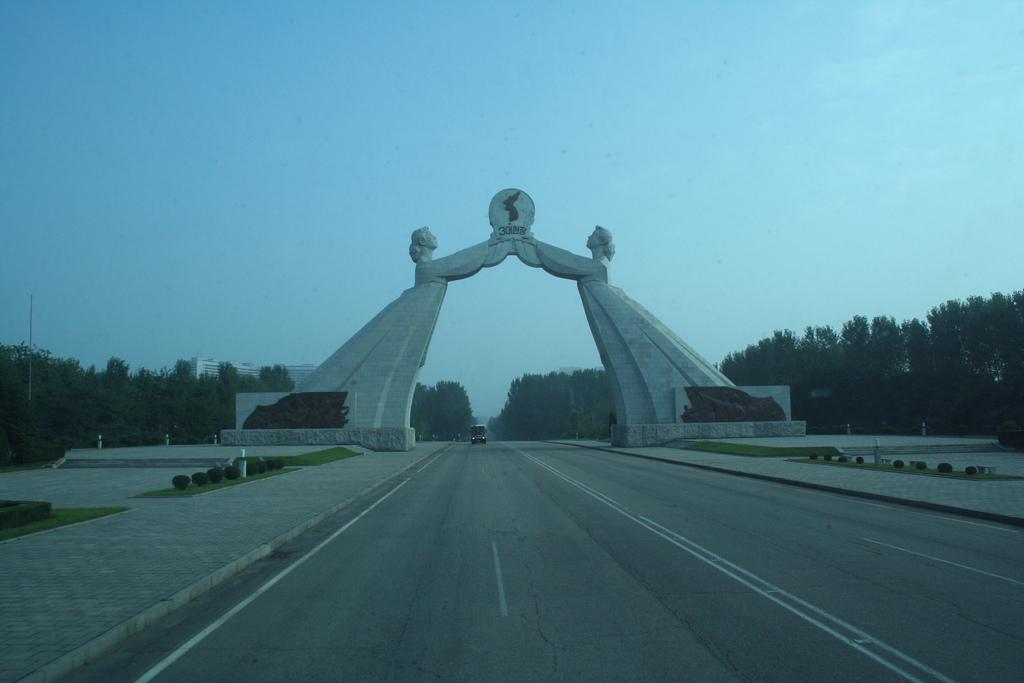 The normalisation of tension on the Korean Peninsula is settling onto its foundations, with South Korea pledging US$7.3 million of humanitarian aid to North Korea over the weekend. The move came one day before South Korea offered a ‘final’ round of talks with the DPRK to re-open the Kaesong industrial complex on the north-south border. Meanwhile, Pyongyang celebrated the (July 27) 60th anniversary of the Korean Armistice agreement, predictably, with a military parade.
The normalisation of tension on the Korean Peninsula is settling onto its foundations, with South Korea pledging US$7.3 million of humanitarian aid to North Korea over the weekend. The move came one day before South Korea offered a ‘final’ round of talks with the DPRK to re-open the Kaesong industrial complex on the north-south border. Meanwhile, Pyongyang celebrated the (July 27) 60th anniversary of the Korean Armistice agreement, predictably, with a military parade.
Across the water, the Japanese returned Prime Minister Shinzo Abe to office. At a speech in Singapore he confidently declared:
…the will to change has returned to Japan, and so has strength. The “revolving door” politics with its high turnover for which Japan is now known has disappeared and is now a thing of the past.
Prime Minister Abe also emphasised the importance of the relationship between Tokyo and ASEAN, expecially for helping to drive growth in the Japanese economy, saying “ASEAN and Japan are twin engines.” But there is a note of caution. The Economist worries that Mr Abe may use his mandate to push a nationalist political agenda, like proposed changes to Japan’s pacifist constitution, using up political bandwidth that should be devoted to economic growth.
Washington has appointed Caroline Kennedy as US ambassador to Japan. Reactions to the appointment have been mixed. Mrs Kennedy is a prominent figure in the US, a strong supporter of President Obama and daughter of assassinated president John F Kennedy. But on the other hand she has no real diplomatic or regional experience.
Closer to home, ASPI’s Peter Jennings and Tobias Feakin have released a special report on the emerging agenda for cybersecurity. Dr Feakin talks here to the ABC, urging Australia to make cyber security a priority. The Financial Review has an editorial today echoing that idea. The release of this report comes ahead of the launch of ASPI’s International Cyber Policy Centre on Thursday.
On the subject of the future direction for Australia’s defence and security policy, Peter Jennings has an article in Policy Magazine on the challenges for Defence after this year’s election:
…the 2013 white paper is unlikely to have a long shelf life beyond the election. What should government do with Defence policy after the 2013 general election? There is no deeper need than to reset the relationship between the minister and the department.
Events
For those in Sydney after a bit of Canberra on 7 August, the Lowy Institute is hosting a debate on Australian foreign policy between the Minister for Foreign Affairs and Trade Bob Carr, and shadow Minister for Foreign Affairs Julie Bishop.
Back in Canberra, ANU is hosting Dr John Nagl to talk about counterinsurgency lessons from Iraq and Afghanistan. The talk is called Learning to Eat Soup with a Knife, and is on Tuesday August 13.
Image courtesy of Flickr user Michael Day.